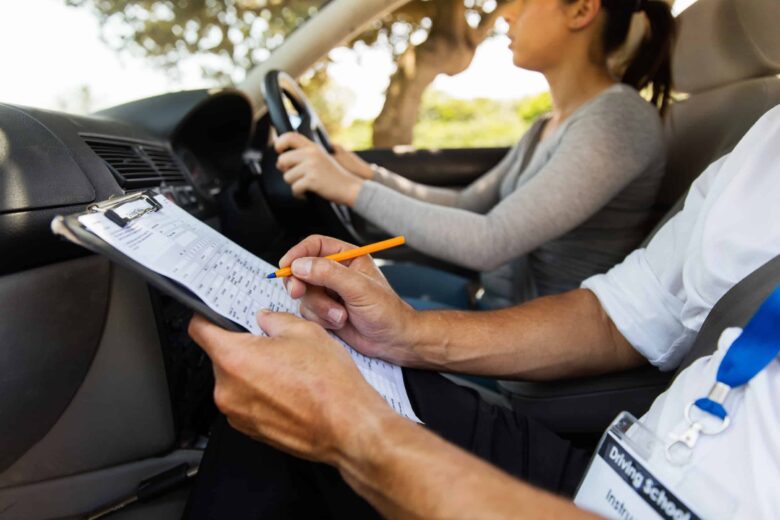A car accident is a traumatic experience no one wants to have because its impacts are not just limited to physical injuries, but they can extend to our mental health and mess things up. If you’re someone who’s been involved in a car crash, then you understand what I’m getting at.
It doesn’t matter if you came out of the crash without a scratch; the emotional toll a car accident can cause on us can sometimes lead to driving anxiety, a condition where we’re scared to get behind the wheel again because we’re afraid not to get into another accident.
The truth is that overcoming driving anxiety does not have a one-fit-all strategy, as we all have our various experiences as well as factors that may have led to the crash. So, suggesting a single tactic for handling this condition would be inconsiderate. However, here are some tips that can guide you in regaining your confidence and control on the road while driving.

Source: calm.com
Contents
Acknowledge Your Feelings
After the whole car crash scenario, it’s natural to feel emotions like fear, anxiety, and even guilt. According to research by the Anxiety & Depression Association of America, around 30% of people involved in an accident experience these emotions.
So, you don’t have to panic or worry excessively over anything; instead, I’d suggest you acknowledge that these feelings are valid and that it’s okay to feel the way you do.
After all, you’re human, and we all go through these phases after catastrophic incidents. So, accept these emotions and, in fact, use them as a tool to start the healing process and move on toward overcoming your driving anxiety.
If you feel the emotions are too much to handle alone, then it would be best to involve a friend or family member. Communicating your experiences and having someone listen to you and offer advice can make all the difference in your recovery. So, consider it an option.
Otherwise, please book an appointment with a mental health professional who specializes in trauma or anxiety (we will be addressing this subsequently). They’ll be best equipped to offer you coping strategies tailored to your specific needs and conditions.
Get Professional Help
Getting help from a mental health professional, such as therapy or counseling, should be your next resort if you feel your friends and family are unable to help you handle your anxiety effectively. A recent study has shown that around 80% of people with driving anxiety have recovered with therapy.
A remarkable recovery rate, you’d agree, but more importantly, this proves why you should consider speaking with a therapist. A mental health professional can provide a safe space for you to express your fears and anxieties and serve as a crucial mediator in helping you overcome your driving phobia and prescribing a personalized therapy technique that can help you.
If you’re worried about the cost of consulting a therapist and a victim of a negligent driver, you may want to consider seeking legal assistance from maierattorney.com as they will help you get the right compensation and attention that you deserve after all.
According to Dolinsky Law Group in Nashville, TN, seeking legal assistance in a situation like this may help you explore options for compensation related to the accident so you don’t have to suffer the costs of your recovery alone.
Moreover, many therapists offer various payment options, and some may be willing to work on a sliding scale based on your financial situation. So, don’t let concerns about cost hinder you from seeking the help you need.

Source: mercymultiplied.com
Slowly Get Back on the Wheel
You don’t need to start driving yourself immediately; find a friend or family member to drive you around most of the time while you get back on track.
Occasionally, ask them to allow you to handle the steering wheel in some secure locations. This should boost your confidence and fast-track the healing process.
Whenever you’re the one driving, ensure it’s strictly around low-traffic areas because the main aim of this strategy is to rebuild the mental image of yourself as a driver and nothing too serious.
In fact, a good suggestion would be to start driving around your neighborhood or a quiet residential area until you become more comfortable with increasing the distance and complexity of your driving.
Take Refresher Driving Lessons
This option is essential if you discover that you’re struggling while driving. The struggle may be due to being overwhelmed by the memories of the accident or because it’s been a while since you drove. If it’s the latter, then you may need to refresh your driving skills with a driving instructor.
What you have to do is look for a good driving school in your area and enroll. Some of these driving schools have special programs and courses for accident survivors like you, and they call them “driving confidence courses.”
Now, what these courses do is help reinforce your driving skills, boost your confidence, and provide a supportive environment to address any concerns you may have.
Depending on the school you enroll in, you should get a driving instructor explicitly assigned to you to guide you through the course program.
They will ask about your accident experience and then tailor the course in such a way that it helps you more effectively. To put this in perspective, your instructor will try to understand what’s causing your driving anxieties and guide you in facing those fears gradually until you’re comfortable facing them on your own without any worries.

Source: u-drive-som.co.uk
Maintain Your Vehicle Regularly
There’s nothing more reassuring than having an optimally functioning vehicle at your disposal. Just the awareness that your car is working fine can boost your confidence when recovering from driving anxiety.
This is why it’s essential to regularly maintain your vehicle and ensure it’s in good working condition. Try as much as possible to schedule regular maintenance checks, address any mechanical issues promptly, and keep your car clean and organized.
I understand it’s not a cheap routine. Still, your safety should mean everything to you, and knowing that your vehicle is reliable and well-maintained can instill confidence and alleviate concerns about unexpected breakdowns or malfunctions.
Give Yourself Time to Heal
This is not a time to beat yourself up or worry about your recovery rate. Healing takes time, and this is why you have to be patient to allow your mind to heal from the trauma you’re experiencing.
Always hang around your family and friends during this period; do not allow the thoughts of being left alone to push them away and leave you in solitude. This will not aid your healing in any way; instead, it will make things worse and leave you without anyone to confide in or lean on for support.
As the famous singer Bill Withers once sang, “We all need somebody to lean on,” and that’s what your friends and family are there for.

Source: cpdonline.co.uk
Soon, you’ll be done with this phase of life and may even forget it happened unless reminded otherwise. So, don’t let it take the most out of you. You’ve got this!
